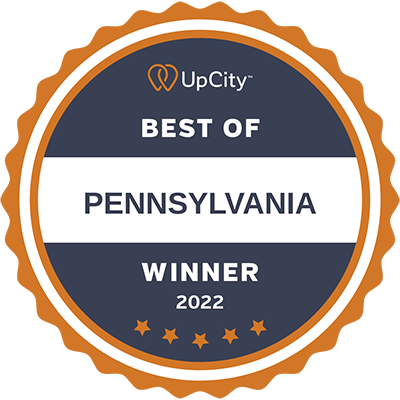Engagement strategies for social media, facilitated by the unique features of each platform, have become essential for brands intending to build relationships with their consumers. These strategies foster relationships and drive business growth by creating meaningful user interactions. Businesses can uncover unique opportunities that enhance their overall impact by leveraging specific tactics. Familiarizing themselves with the intricacies of social media engagement is imperative for brands wanting to prosper in an increasingly competitive market. Companies establish a strong presence and resonate with their target audiences. Through effective engagement with help from LaunchUX, companies can establish a strong presence and resonate with their target audiences.
Niche Market Exploration
Discovering Unique Segments
One of the most exciting advantages of effective engagement strategies is the ability to explore niche markets. It’s like embarking on a journey of discovery. By actively engaging with specific communities on social media, brands can uncover unique customer segments that may have previously gone unnoticed. This targeted approach allows businesses to identify groups with common interests, leading to more effective marketing campaigns. Engaging with these niche audiences enhances brand loyalty and creates opportunities for tailored messaging that resonates deeply with potential customers. By focusing on niche segments, brands can establish valuable relationships and encourage a sense of collaboration.
Tailored Messaging
These niche audiences often possess specific interests and needs, which presents a unique opportunity for brands. Tailoring offerings to meet these needs can lead to higher customer satisfaction and loyalty. Additionally, engaging with niche markets can give valuable insights into customer preferences, enabling brands to adapt their strategies accordingly. By recognizing the distinct characteristics of these segments, businesses can develop marketing messages that speak directly to their interests. This level of personalization strengthens relationships and encourages ongoing engagement.
Strengthening Brand Loyalty
Moreover, exploring niche markets can help brands stand out in a crowded marketplace. Focusing on specific communities can differentiate a brand from its competitors in a world where consumers are bombarded with information. This strategic approach increases visibility and positions the brand as a leader within those niche spaces. Engaging with niche segments allows for more authentic connections, which can translate into strong word-of-mouth marketing. As clients relay favorable feedback, brands can enjoy organic growth and increased awareness within their target markets.
Real-Time Feedback Loop
Instant Insights
Social media provides a powerful real-time feedback loop, enabling brands to gather immediate insights on their products or campaigns. This instant feedback mechanism allows businesses to make quick adjustments and improvements based on customer reactions. By actively monitoring engagement, brands can identify what resonates with their audience and what doesn’t. This attentiveness is essential in an ever-evolving marketplace where trends can shift rapidly. Embracing real-time feedback demonstrates a brand’s commitment to continuous improvement and customer satisfaction, necessitating a dynamic approach to engagement strategies.
Agility in Marketing
When brands receive immediate feedback, they can quickly adapt their strategies. For example, if a particular post generates a lot of engagement, brands can capitalize on that momentum by creating similar content. Conversely, if a campaign isn’t performing well, quick adaptations can be undertaken to strengthen its effectiveness. This level of agility is essential for staying relevant in an ever-changing landscape. Brands that prioritize real-time feedback improve their products and show their audience that they are listening and responding to their needs.
Continuous Improvement
The ability to gather insights instantly also fosters a culture of innovation within the brand. Teams can brainstorm ideas based on customer sentiments, leading to fresh and relevant offerings. This proactive approach ensures the brand remains aligned with its audience’s preferences and expectations. Additionally, engaging with customers during product development can lead to co-creation opportunities, further enhancing loyalty. Ultimately, leveraging the real-time feedback loop sets the stage for ongoing success and customer engagement.
Enhances Customer Trust
Building Credibility
Building trust is essential for any brand; social media engagement strategies are pivotal. When brands actively engage with their audience, they signal that they value customer feedback and opinions. This straightforwardness enhances perceptions of trust and reliability, encouraging customers to form a deeper connection with the brand. By prioritizing engagement, businesses can cultivate long-lasting relationships built on trust. Trust plays a vital role in fostering customer loyalty, often translating into repeat business and positive referrals.
Fostering Loyalty
While engagement strategies that prioritize customer interaction create an environment of open communication, it’s important to note that customers who feel heard are likelier to share their experiences and provide constructive comments. This collaborative interaction enhances overall customer satisfaction and improves a brand’s reputation. However, it’s also important to be aware that engaging with niche segments can also amplify negative feedback if not managed carefully. Moreover, demonstrating responsiveness in addressing concerns or questions illustrates that the brand is attentive to its customers. This commitment to customer service is a powerful driver of trust and loyalty.
Encouraging Open Communication
Furthermore, brands that engage with their audience can effectively manage their reputation. By addressing negative feedback or criticism promptly, brands can mitigate potential damage. Engaging with customers during challenging times demonstrates a commitment to transparency and accountability. This proactive approach helps to strengthen trust, as patrons perceive that the brand is committed to taking responsibility for its actions. Enhancing customer trust through effective engagement strategies is essential for long-term success.
Cross-Promotion Opportunities
Strategic Collaborations
Engaging with other brands or influencers opens the door to valuable cross-promotion opportunities. It’s not just about promotion; it’s about building a community. Collaborative efforts can create mutually beneficial partnerships that broaden reach and enhance visibility. When brands engage with influencers or complementary businesses, they tap into new audiences that may not have been accessible otherwise. This type of strategic collaboration amplifies marketing efforts and fosters a sense of community among brands. As a result, both parties can benefit from increased exposure and engagement.
Tapping into New Audiences
By forming partnerships, brands can share resources and insights, further enriching their marketing strategies. Cross-promotion allows for innovative campaigns that leverage the strengths of both brands, creating a win-win scenario. For instance, co-hosting events or contests can generate excitement and engagement from both audiences. These collaborative initiatives not only increase brand awareness but also enhance customer experiences. When customers see brands working together, it fosters a sense of trust and credibility.
Strengthening Brand Presence
Engaging with other brands can also create creative content opportunities that captivate audiences. By combining efforts, brands can produce unique content that resonates with both communities. This type of engagement entertains and educates customers, positioning the brands as thought leaders. As brands work together, they can explore new ideas and expand their horizons. Ultimately, cross-promotion opportunities enrich the engagement strategy, leading to sustained growth and success.
Drives Conversions
Encouraging Desired Actions
One of the most compelling reasons to invest in engagement strategies is their ability to drive conversions. It’s about empowering your audience to take action. Engaged users are likelier to take desired actions, such as making purchases, signing up for newsletters, or sharing content with their networks. By creating meaningful interactions, brands can nurture relationships, encouraging users to move along the conversion funnel. This strengthened engagement effectively leads to increased conversion rates and contributes to overall business success. Understanding how to engage users effectively is key to maximizing conversion potential.
Nurturing Relationships
Furthermore, engagement strategies can help brands identify what drives customer action. Businesses can uncover trends that demonstrate which content styles resonate strongly by analyzing engagement metrics. This insight allows brands to refine their messaging and direct efforts toward solutions that provide the most significant benefits. Engaging users through personalized content and targeted promotions can significantly enhance conversion rates. As customers feel more connected to a brand, they are more inclined to make purchases or share their positive experiences.
Measuring Success
Moreover, fostering a sense of community around a brand can lead to increased conversions. When customers feel part of a larger group, they are more likely to advocate for the brand and influence their circles. This personal recommendation can serve as a potent force for conversions, as recommendations from friends and family hold significant weight. By prioritizing engagement, brands can create a loyal following that actively participates in their growth. Effective engagement strategies are essential for driving conversions and achieving long-term success.
Conclusion
Social media engagement strategies are not just about posting content but about building relationships, gathering insights, and driving results. By exploring niche markets, leveraging real-time feedback, enhancing customer trust, fostering cross-promotion opportunities, and driving conversions, brands can fully leverage their opportunities on social media platforms. These strategies contribute to a cohesive approach that enhances overall engagement and growth. As social media evolves, brands must adapt their strategy to remain relevant and impactful.
Are you ready to elevate your social media game? Contact LaunchUX today, start implementing these engagement strategies, and watch your brand thrive!





